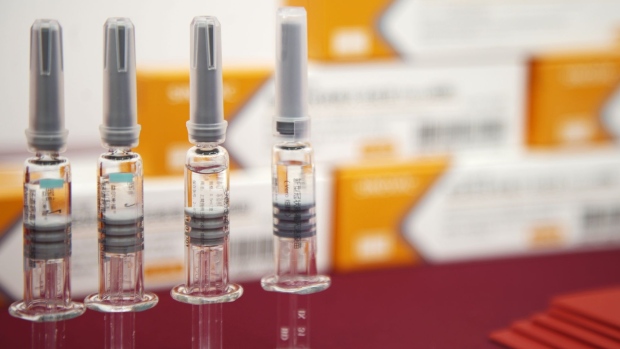RIO DE JANEIRO, BRAZIL – The National Health Regulatory Agency (ANVISA) on Friday, October 23rd, authorized the import of six million doses of CoronaVac, the Chinese vaccine that should be produced by the Butantan Institute, in São Paulo.

The decision does not address the request made by the São Paulo government to authorize the import of the necessary raw materials for the production of another 40 million doses in Brazil.
CoronaVac is currently in its third trial phase. Sinovac, the Chinese pharmaceutical company responsible for the vaccine, has not yet been granted registration to administer the immunizer, which cannot be used by the population.
To date, only partial data concerning the safety of the vaccine have been submitted by the São Paulo government, but they have not been forwarded to the agency or published in scientific journals.
The CoronaVac is the target of a political dispute between the Ministry of Health, President Jair Bolsonaro and the governor of São Paulo, João Doria. On Tuesday, October 20th, Minister of Health Eduardo Pazuello announced negotiations to purchase 46 million doses. Bolsonaro immediately ordered the purchase to be cancelled. The Ministry obediently stated that “there is no intention to purchase” and changed the statement on its website.
Forty-six million doses expected
In total, the São Paulo government signed a contract with the Chinese Sinovac for the purchase of 46 million CoronaVac doses. These first six million will be shipped from China fully ready, and the remaining 40 million will be packaged and labeled at the Butantan Institute based on the imported material.
Earlier on Friday, Butantan director Dimas Covas said that the schedule set by the São Paulo government is maintained, regardless of the São Paulo authorities’ claim that ANVISA is delaying the clearance of raw material import from China.
On that same day, the agency denied any impediment and authorized the purchase of the doses, but the issue of raw material import was not clarified.
In an interview to the TV Globo Jornal Nacional on Thursday, Dimas Covas said: “At the moment what matters to us is the raw material, precisely because the plant, our production line, is stopped waiting for the arrival of this raw material.”
More research centers
The government of São Paulo also announced on Friday the establishment of six new centers to conduct CoronaVac trials on volunteers. As a result, the total number of research centers in the country will increase to 22.
The CoronaVac is in its third trial phase. The group of volunteers is comprised exclusively of healthcare professionals. To date, 15,000 vaccines have been administered to 9,000 volunteers. Each volunteer is given two doses. With the opening of the new centers, the goal is to broaden the research to a total of 13,000 volunteers.
In this final research phase, half of the subjects are vaccinated and the other half receive a placebo. To determine the efficacy of the CoronaVac, at least 61 participants must be infected with the coronavirus.
If the immunizer achieves the required efficacy and safety rates, it can be submitted to ANVISA for registration and subsequent application to the population.
To expedite the evaluation process of potential immunizers against the coronavirus, ANVISA has reduced the initial documentation requirements and simplified the registration process so that the studies’ data may be submitted during the work, rather than only upon conclusion.
Source: G1

